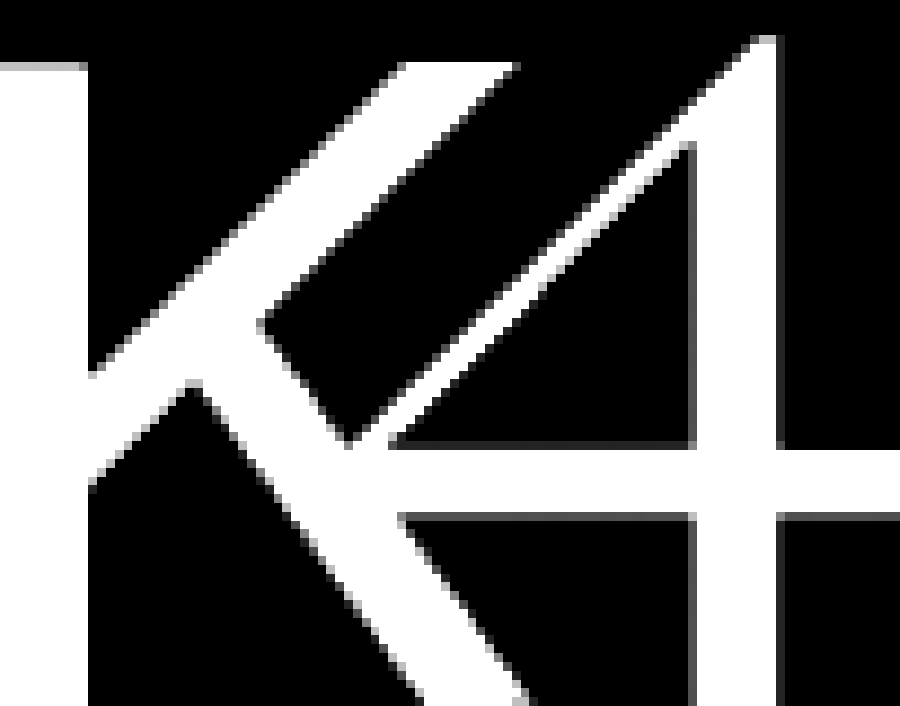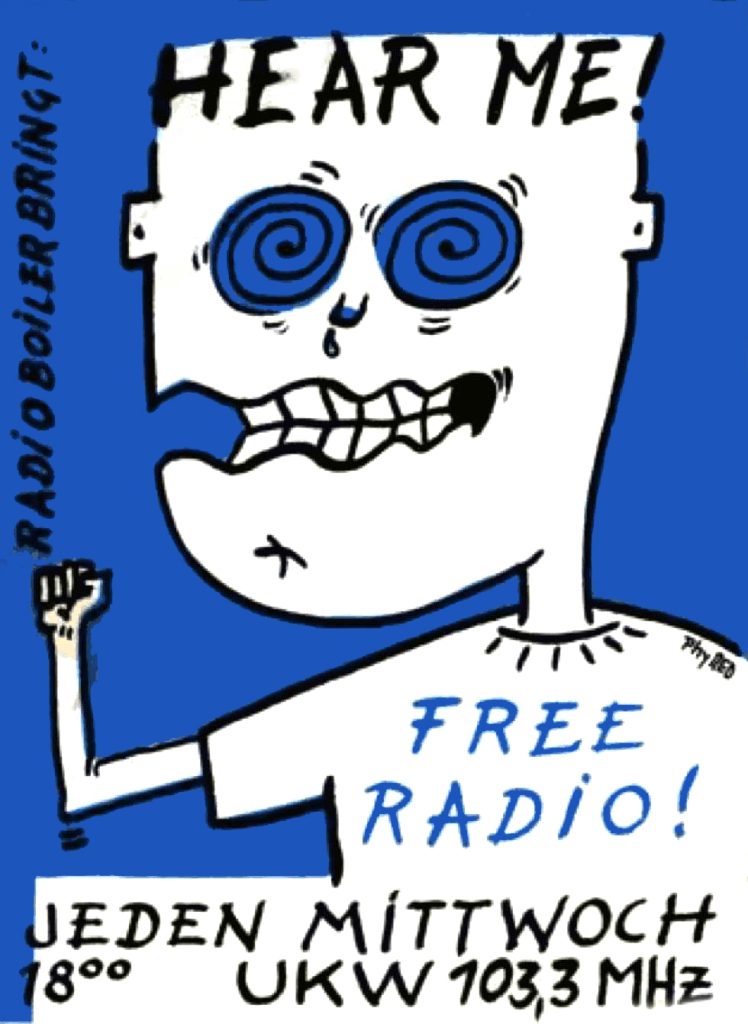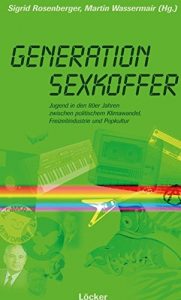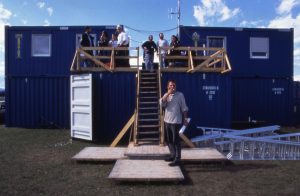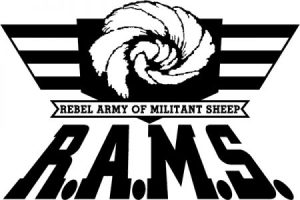Concept K4 – Vienna City Radio (Stadtradio Wien) 1993 – 94
European national landscapes have a significant gap between public and private interests, mirroring the state of democratisation and democratic conciousness in societies. Leading countries as The Netherlands are in sharp contrast to the Austrian incredible media concentration combined with the lack of any access.
The first chance to break the general disastrous trend is the start of Austrian local private radio in 1995. One of the competitors in licensing process is K4, an artist founded project as an alternative commercial way of radio in Vienna.
Co-orporations with independent producers in the art & science which appear as special interest programs, should force a broad producer scene. For economical reasons, the main program will be generally orientated on a young urban, higher educated audience.
Expected costs of $1-1.5 million will have to be financed with commercials and special-interest sponsorships.
Though associated to international publishing houses and a small Viennese city journal, the independence of production and pluralistic intention should be guaranteed because of certain terms in statute. Future must proof it!
Based on personnel experience and referring to existing international examples, K4 is the concept of a modern city radio station, with some special interest aspects on a high professional level.
It could have been a small supplementation to Austrian social live and democratic variety, a small base on the hard way to Austrian access to media.
Personell:
Thomas Madersbacher, Program Director K4
Alf Altendorf, Director external production & radio arts, Chairman „Society for Radio & Culture“
K4 – Project
founded 1993 by Alf Altendorf &Thomas Madersbacher.
K stands for Kanal (Channel in English) or Kultur (culture), 4 follows the numbers of ORF radio channels (Austrian State Radio) – Ö1 (nationwide), Ö2 (local channels like Ö2 – Radio Vienna, Radio Styria and so on) and Ö3 (nationwide).
The concept followed roughly British Channel4 in organisational structures (independent production). During day more commercially orientated, during night more experimental through independent program windows (Viennese culture and science scene).
K4 was somehow a predecessor of FM4 (music style, self consciousness) and influenced by free independent radio (our personnel background).
Later (Q1/1994) the project was split in two side-by-side working units:
K4 – Company and Gesellschaft für Radio & Kultur (Society for Radio & Culture)
K4 – Radio Company
Rüdiger Landgraf & Thomas Madersbacher made the core company and program concept in end 1993.
K4 Society for Radio & Culture
founded 1994 by Thomas Schallar & Alf Altendorf
Task: setup the platform for independent producing in future K4 – Radio
(Description, sorry, in German!)
„Mit dem Bewerber K4 auf eine lokale Rundfunkfrequenz besteht die im deutschsprachigen Raum einmalige Chance für die gesamte Wiener Kultur, im Falle einer Erteilung der Lizenz in Form von Produzentengemeinschaften direkten medialen Zugang zum Publikum zu erreichen. Hierfür würden von K4 kostenlos Sendezeiten zur Verfügung gestellt werden,wobei sich das „Universitätsradio“ mit allen Wiener Universitäten bereits als erster Kooperationspartner formiert hat .
Ziel des Projektes, getragen durch den „Verein für Radio und Kultur“, in dem bereits einige Veranstalter (wie WUK-Werkstätten und Kulturhaus , Szene Wien , Theater im Künstlerhaus , Literaturhaus und unabhängige Kulturschaffende ) sich zusammengeschlossen haben, sind folgende
- Erarbeitung eines Organisationskonzeptes zur Formierung einer geschäftsführenden Betriebsgesellschaft und einer Produzentenvereinigung
- Erarbeitung eines Finanzkonzeptes mit Partnern der Öffentlichen Hand und aus der Privatwirtschaft
- Kooperation und Einbindung von Produzenten aus den Bereichen Literatur, Musik (Konzertveranstalter U E, Institut für Elektroakustik), Bildende Kunst (Galerien, Museen etc.), Medienkunst, Film, Theater und einzelnen Hochschulinstituten (Institut für Elektroakustik, Medienklassen), u.a. Initiierung eines Programm- und eines Produktionskonzeptes
Nach Lizenzvergabe und Gesamtrealisierung
- Überführung des Vereins „Verein für Radio und Kultur“ in den oder die Produzentenvereinigung(en), Etablierung der Betriebsgesellschaft unter Beteiligung und Sitz des Kulturamtes der Stadt Wien
- Vertragsabschluß der Betriebsgesellschaft und K4
- Durchführung der Probeläufe und Probeprogramme vor dem Sendestart auf K4
SOCIETY COOPERATIONPARNERS
COOPS – THEATER:
Stephan Bruckmeier (director), Macile Dossenbach (IG Freie Theater ), Hans Gratzer (Schauspielhaus ), Lies Kato, Hubsi Kramar, Gernot Lechner (director), Christian Pronay (dieTheater ), Werner Stolz (director), Richard Schweitzer (ViennaActs)
COOPS – DANCE:
Daniel Aschwander (dancer), Willi Dorner (choreographer), Brigitte Fürle (TJunktion), Karl Regensburger
COOPS – MUSIC:
Dominik Dusek (musician), Dieter Kaufmann (University for Music – composer), Peter Mechtler (University for Music – electronic sound), Manfred Winter (Szene Wien ), Mia Zabelka (musician-composer)
COOPS – LITERATURE
Walter Famler (Wespennest ), Thomas Northoff (writer), Gerhard Ruiss (writer, Literaturhaus)
COOPS – ARTS:
Grita Insam (Galery), Margarete Jahrmann, Franziska Kaspar (Galery Exnergasse ), Max Moswitzer (You Never Know), Christian Reder (University for Applied Arts), Peter Sandbichler (artist), Verband Galerien Moderner Kunst
COOPS – ARCHTECTURE:
Georg Galamfalvy (Aufbau Wohnen), Architektenkammer
COOPS – MEDIA ART:
Manfred Aigner (Eikon ), Mathias Fuchs (media artist), Kurt Hentschläger (Pyramedia), Bernhard Loibner (All Quiet on the Western Front), Andrea Sodomka (artist), Ferdinand Stahl (Medienwerkstatt), Petra Rosa von Suess (Pyramedia), Herwig Turk (Hilus, artist)
COOPS – FILM:
Guido Exinger (Filmcasino, Filmhaus Stöbergasse), Florian Flicker (director), Sonja Groschup (animator, artist), Mara Matuschka (animator, artist), Wolfgang Schwarz (Stadtkino), Michael Stejskal (Filmladen, Votivkino)
INSTITUTIONS & OTHERS:
Gerda Lampalzer (Medienwerkstatt), Thomas Miesgang (MA7 – Kulturamt), Ulrich Reck (University of Applied Arts), Wolfgang Reiter (Ikus), Stella Rolig ( Ferderal Curator for Arts), Alfred Smudits, Ernst Struhal (philosopher), Vincent Abbredis (WUK), Jeff Bernard (BMUK), Norbert Ehrlich (Szene Wien), Tom Eller (Flex), Edit Mugenhumer (Bach), Martin Raab (Arena)
JOURNALISTS:
Thomas Edlinger (ORF), Walter Gröbchen, Heidi Grundmann (ORF), Doris Knecht (Falter), Doris Krumpl (Standard), Lothar Lohs (Standard), Rainer Mandl (Werk & Kultur), Gerhard Moser (ORF), Klaus Nüchtern (Falter), Roland Pohl (Standard), Fritz E. Rakuschan (art journalist), Wolfgang Ritschl (ORF), Thomas Rottenberg (ORF), Thomas Schöni (ORF), Robert Weichinger (ORF), Markus Wailand (Falter)
As you see, a lot of ORF journalists on the list of partners & supporters! Guess what happened?
Mid 1994 it became clear that the ORF will soon start something with „4“ as well with similar target groups as us („FM4“ startet 1.1.1995)
For that reason the project was stopped and never became reality. But the whole networking for K4 helped to establish my next follow-up project in the field of television: -> T.I.V.

